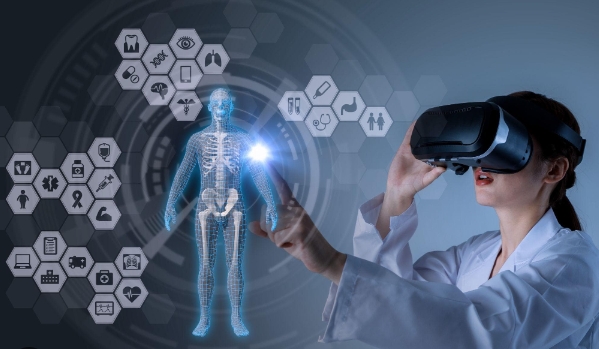Breakthrough Technology Revolutionizing Medical Treatment
Medical advancements have always been at the forefront of innovation, with new technologies constantly being developed to improve patient care and outcomes. One such breakthrough technology that is revolutionizing medical treatment is precision medicine.
Precision Medicine: Tailored Treatments for Individual Patients
Precision medicine is an approach to patient care that takes into account each person’s unique genetic makeup, environment, and lifestyle to provide tailored treatments. This personalized approach allows for more effective and targeted interventions, leading to better outcomes and fewer side effects for patients.
One example of precision medicine technology is genetic testing, which can identify specific genetic mutations that may make a patient more likely to develop certain diseases. By analyzing these genetic markers, healthcare providers can tailor treatment plans to address an individual’s specific risk factors and needs.
Artificial Intelligence: Enhancing Diagnosis and Treatment
Another breakthrough technology revolutionizing medical treatment is artificial intelligence (AI). AI systems are capable of analyzing large amounts of data in a fraction of the time it would take a human, allowing for more accurate diagnoses and treatment recommendations.
For example, AI algorithms can sift through medical records, imaging scans, and other patient data to identify patterns and predict outcomes. This can help healthcare providers make more informed decisions about treatment options and improve patient outcomes.
Telemedicine: Increasing Access to Care
Telemedicine has also been instrumental in revolutionizing medical treatment by increasing access to care for patients in remote or underserved areas. Through virtual consultations, patients can receive medical advice, diagnosis, and treatment from healthcare providers without having to travel long distances.
Telemedicine has also played a critical role in managing the COVID-19 pandemic, allowing patients to receive care while minimizing the risk of exposure to the virus. This technology has proven to be a valuable tool in ensuring continuity of care during these challenging times.
In conclusion, breakthrough technologies such as precision medicine, artificial intelligence, and telemedicine are revolutionizing the way medical treatment is delivered. These advancements have the potential to improve patient outcomes, increase access to care, and reduce healthcare costs. As technology continues to evolve, the future of medicine looks brighter than ever.

